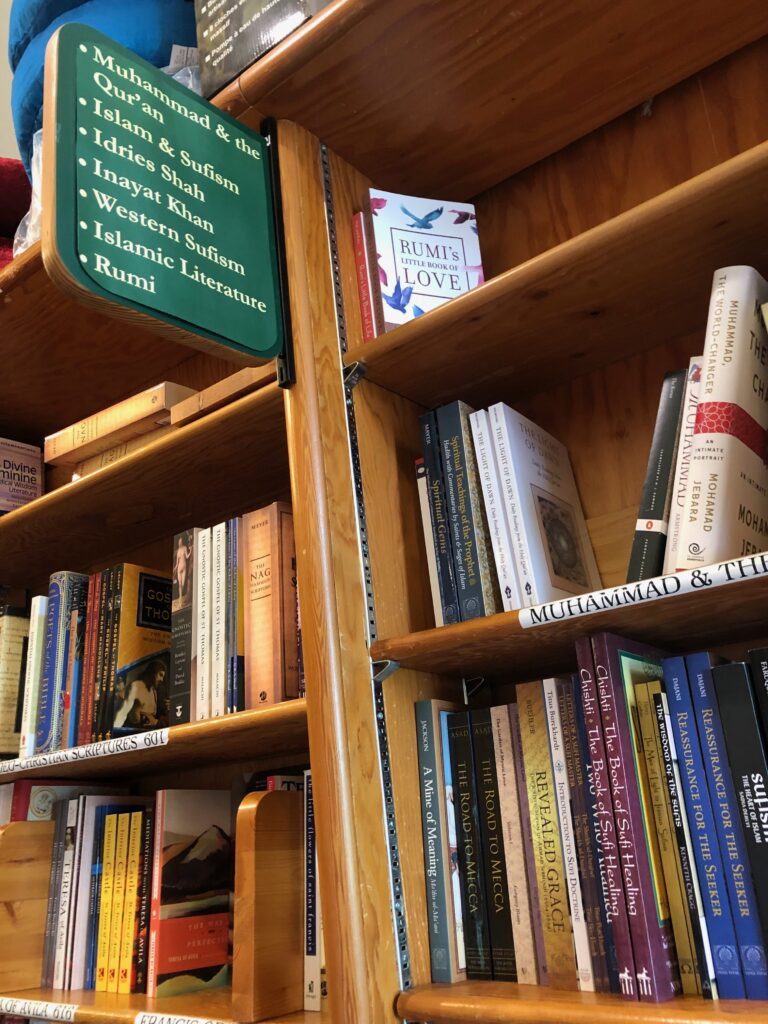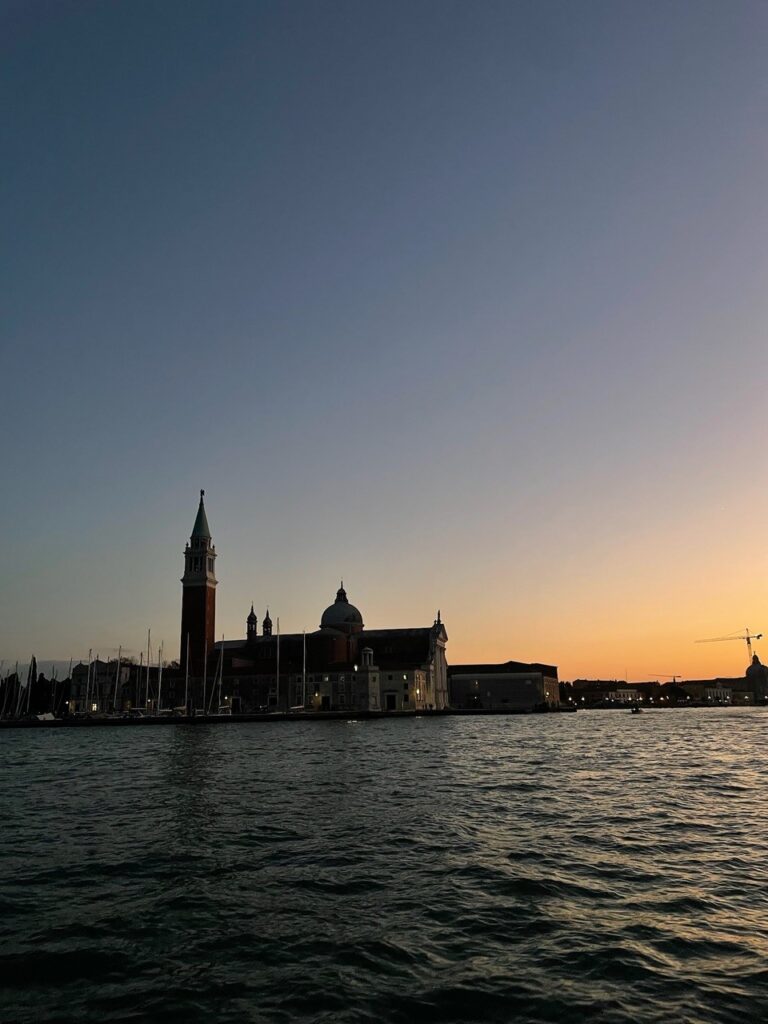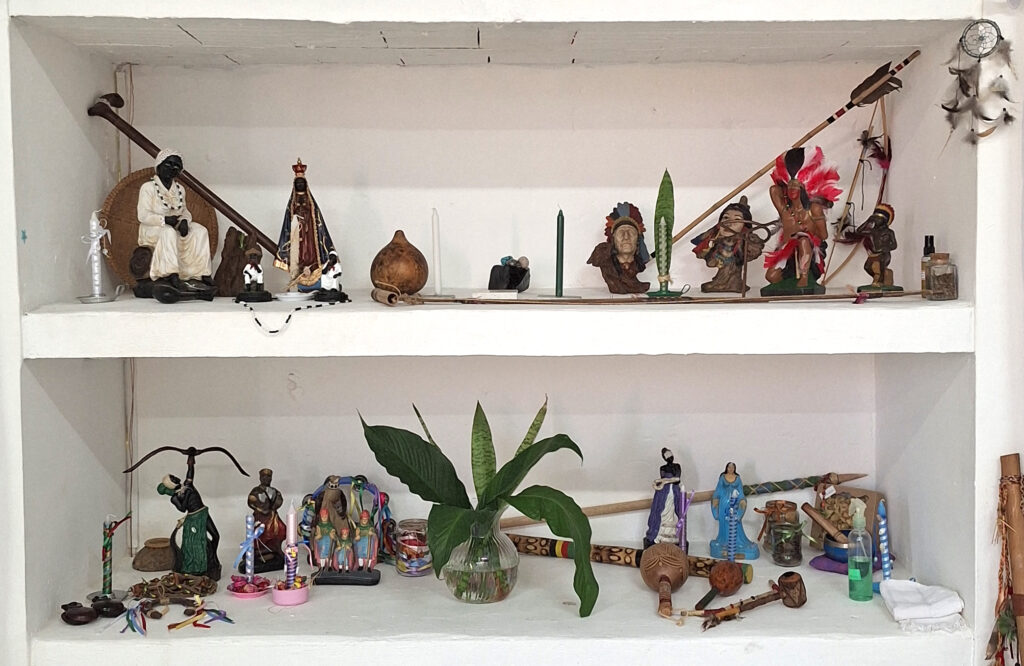By Abimbola Adelakun
Let me start by describing a scene where what is called “violent prayers” is enacted in a Nigerian church. First, the mood of the congregation must be geared toward the will to do some violence. Life is war, the ministering pastor reminds everyone present. The forces that battle against us and try to prevent us from fulfilling our destinies never stop advancing. To fully express the life of Christ in one’s social existence, one must go to war against them. The pastor, usually a male, relays stories of existing supernatural battles either in the Bible or supposedly shared with him by other prayer warriors, and by the time he is done with these human-spirits encounters, people would have been stirred in their feelings. With these stories, he stimulates them to a psychic transformation from ordinary church congregants living ordinary lives to people who can battle, people who have become spiritual weapons, God’s destructive machines.
When they have been stimulated enough, it is time to confront the antagonistic occult forces. The preacher bellows “Praaaay!!!!” into the public address system rigged across the church auditorium. The call for prayer is the call to battle and the congregation is soon locked into war with various militating forces who may appear invisible but are nevertheless felt and visualized through their activities on the bodies of the congregants. One’s social deficiency, one’s inability to live up to potential, one’s failure to live even while yet alive, are all the driving emotions that animate these battles. With an intensive mix of gestures, self-narrations, and imprecations, these prayer warriors—who could number up to thousands—fantasize the remote killing of those holding their life hostage. Their prayers are a chant of “die in the name of Jesus!” and frequently followed by seemingly endless chants of “die!” “die!” “die!” “die!” For instance, they would pray, Thou power of evil laying of hands on my head, die, in the name of Jesus …. Die! Die! Die! Die! ….Power of any mark or incision linking me with evil ancestral powers, die, in the name of Jesus… Dieeeeeeeeee!.
Death is a recurrent theme in violent prayer. In fact, it is a major preoccupation. To a major extent, the politics and poetics of these prayers are a consequence of social militarization, and the concomitant spiritual devotion takes war as a condition of existence for which people must be prepared to fight for their lives. War as reality of everyday life takes people through a preexisting field of relations where, compelled to draw upon their creative capabilities to ensure survival, they draw upon cultural resources to refigure their lived experiences.
The question people frequently ask me, “why is this Christianity? Isn’t this some form of paganism?” Well, these prayers are not called “violent” for arbitrary reasons. They have a Biblical basis to justify their choice of designation. “Violent” (or liberation/deliverance) prayers alludes to the Bible, Matthew 11:12, that says, “And from the days of John the Baptist until now the kingdom of heaven suffereth violence, and the violent take it by force.” Several Bible exegetists have offered diverse interpretations of this scripture, parsing it to clarify the mind of Jesus Christ when he spoke of “taking it” through violence. Their theological efforts range from watering down the notion of violence to near-apologizing that Jesus Christ the prince of peace could endorse violence. For some church denominations in Nigeria that pray “violent” prayers, this image of Jesus Christ as a warrior and a killer is exactly the allure. They have taken the idea of violence in this scripture to mean a ritual contention with forces that want them dead, and the slogan often repeated in these churches is “kill them before they kill you, stop them before they stop you.”
Prayer, for them, is thus an act of war that one must survive by any means necessary. The violence is in the language of death, blood, and goriness, as well as the embodied actions concurrently enacted with the words. Their battle for life through their prayers are often characterized by loud animated chants of summoning and addressing some spectral figures, discerning the spirits lodged within matter and revoking them accordingly, and colorfully narrating personal/family histories to divine the sources of present abjection or affliction. For this last part, I will illustrate that a bit. In these prayers, they rebuke ancestral spirits, the occult forces that manifest in their family lineages through intergenerational poverty and recurring patterns of dysfunctional traumatic behavior. For example, it is not uncommon for people to associate poverty in their family to the malevolence of curses placed on their great and grandparents. During my research, I have witnessed loud shouts of people saying prayers such as,
“…Covenant and power of kolanut and alligator pepper linking me to evil ancestral powers, die, in the name of Jesus!”
“…Covenant and power of any libation linking me to evil ancestral powers, die, in the name of Jesus!”
“…Power of any mark or incision linking me with evil ancestral powers, die, in the name of Jesus!”
“…I separate myself from any evil tree representing my destiny, I curse the tree to die, in the name of Jesus!
These violent prayers do everything wars are supposed to affectively do: that is, generate the most visceral and universal of emotions such as fear, terror, horror, excitement, and boil them down to the urgent desire for survival. The performance of the violent prayers often entails evoking history, poeticizing banal language, and re-inventing religious rituals to ultimately eventuate moral renewal and social transformations. In their searches to decipher the occluded processes that account for a reality standing in contrast to their destiny—a predetermined and prefigured ideal self—people employ prayers to probe the limits of reasonable reality. Traveling through history armed with weaponized devices of prayer, people confabulate their ancestral memories, diversely draw upon fictive imaginations, call up the familiar registers of the supernatural and socio-cultural imaginaries of the uncanny, and use them to war towards ultimately registering and substantiating their conjurations of an idealized self.
A contravention of prayer as tranquil communion with the sacred, the sacramental rites of “violent” prayers valorize viciousness through stylized enactments, imprecatory language, and the fantastic imaginations of extinguishing other humans and abstract forces through spiritual “surgical strikes.” Performances of these violent prayers are interplays between the biologization of abstract forms and the symbolization of actual bodies to mark them for ultimate destruction. These prayers are borne of the implicit understanding of the world as inherently violent, and that—a conscript to the warfront of life—one can only survive by also generating the violence that symbolically exceeds the pre-existing violence. Since the human condition is essentially that of violence, victory will come, not through the supposed opposite—which is peace—but by returning fire for fire. Another slogan they usually throw around is, “a crazy world requires crazy prayers.” The theology underwriting this prayer calculates the arithmetic of two negatives as making a positive, with an Orwellian rhetorical flourish that takes peace as war. Not merely attuning to the spate of wars but divining its opposite in more wars, praying violent prayers turns survival into sociality—death and life become concurrent and contingent processes of identity formation, spiritual development, and ethical re-engineering.
#
Abimbola A. Adelakun, Assistant Professor in the Department of African/African Diaspora Studies at the University of Texas at Austin, researches spirituality and performance in Africa. She obtained a PhD from the department of Theatre and Dance at the University of Texas at Austin, along with a doctoral portfolio and Master’s degree from African and African Diaspora Studies at the University of Texas at Austin. Her academic articles have been published with The Drama Review and Journal of World Christianity.
___
Image 1: Church invitations often take the same aggressive tones (Photo by MFM.org)
Image 2: Prayers during men’s fellowship (Photo by Courtesy of TheSun Nigeria)
Image 3: A page from a prayer book (Photo by MFM.org)
___
CAS-E blogs may be reprinted with the following acknowledgment: “This article was published by CAS-E on July 1st, 2024.”
The views and opinions expressed in blog posts and comments made in response to the blog posts are those of the author(s) and do not necessarily reflect the views and opinions of CAS-E, its founders, its staff, or any agent or institution affiliated with it, nor those of the institution(s) with which the author is affiliated.








